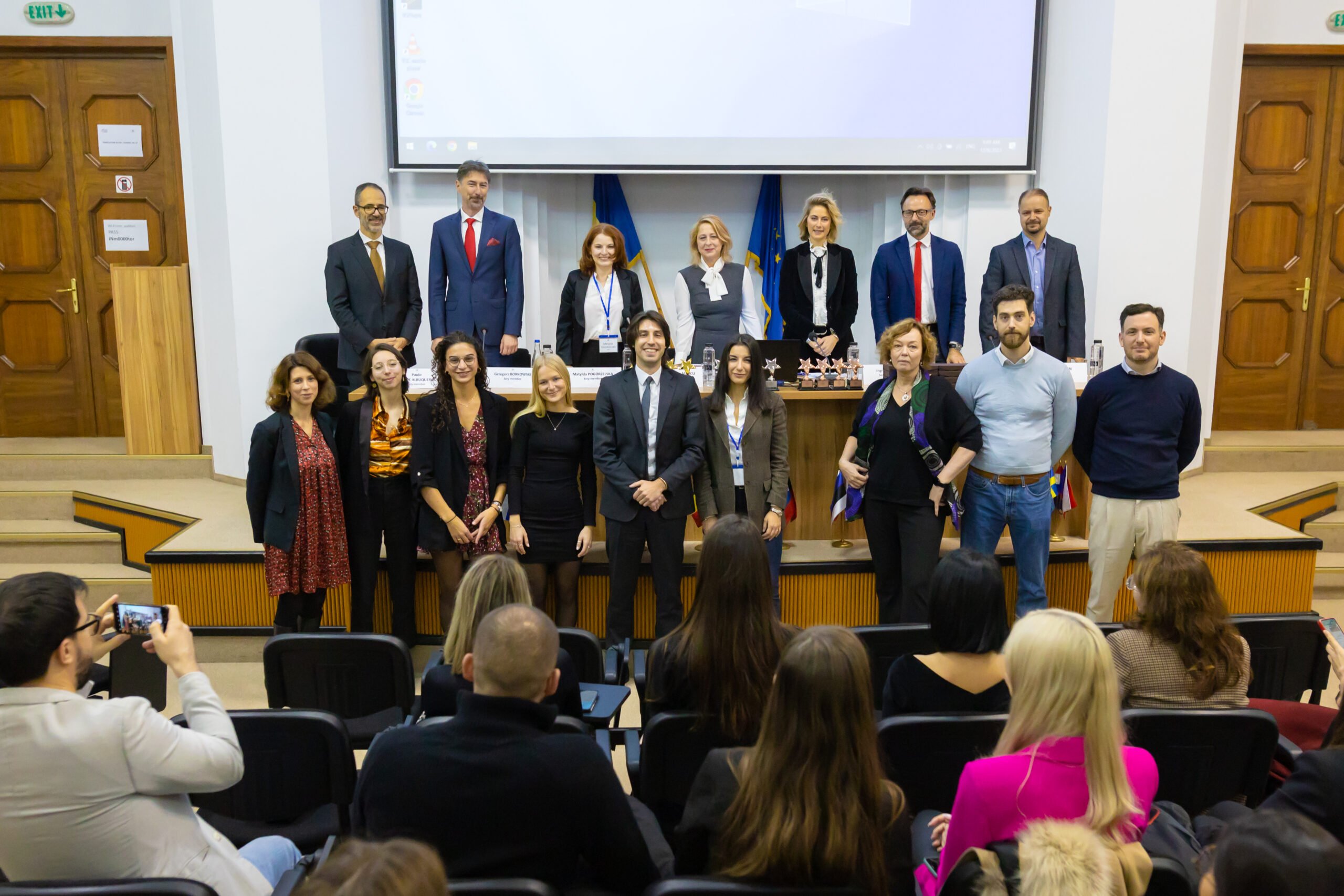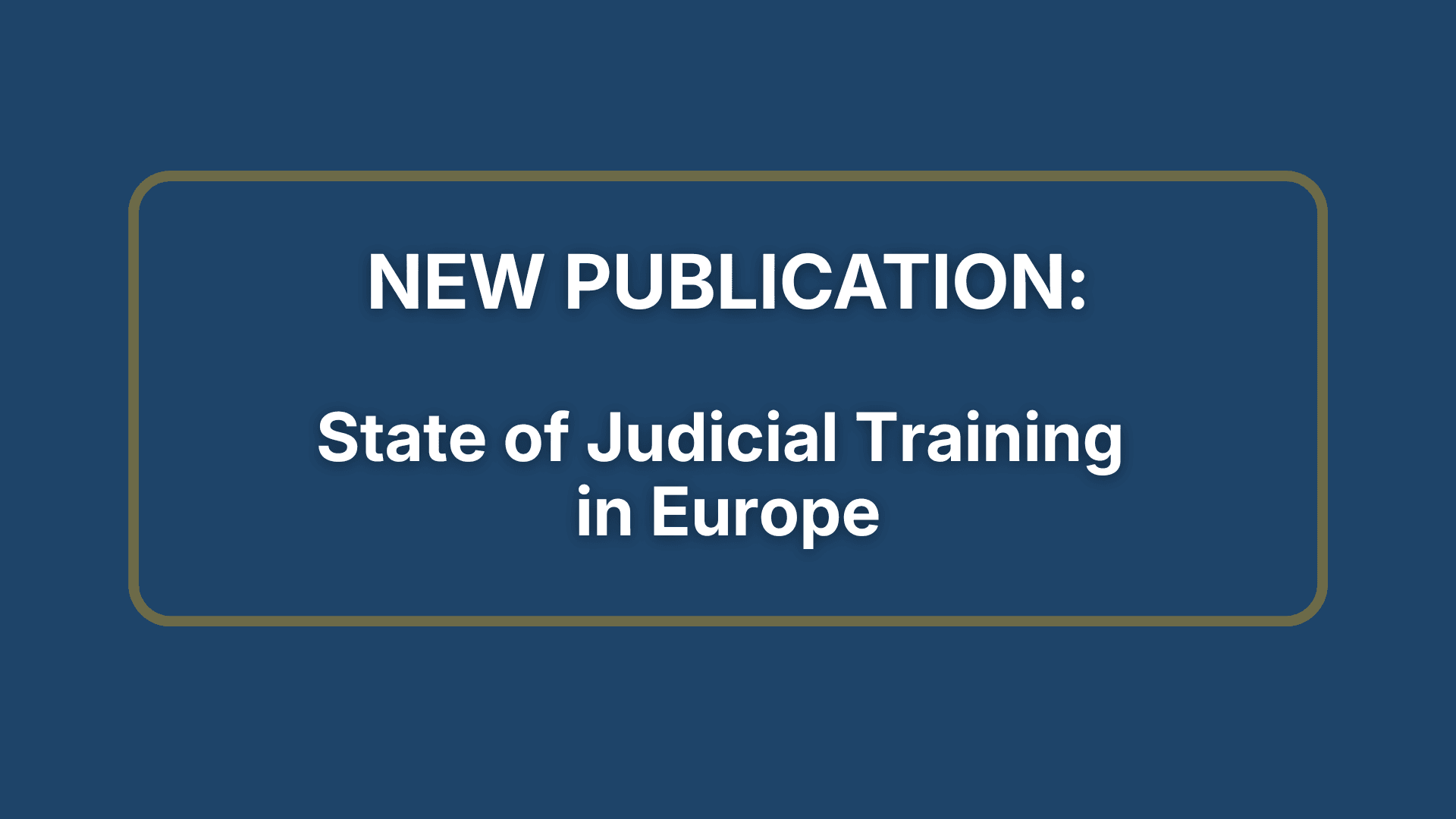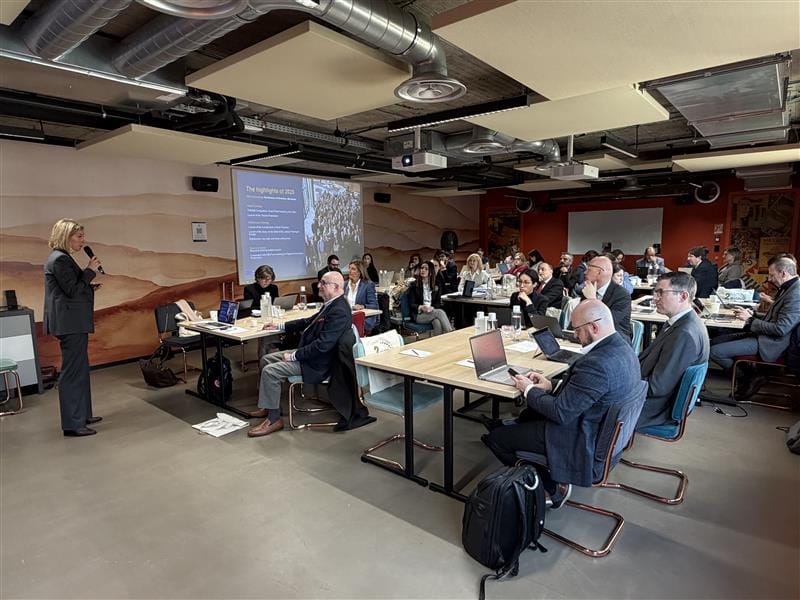This year marks an important milestone in the world of legal education and European justice cooperation, as the THEMIS Competition, organised by the European Judicial Training Network, turns 15 years!
Since its inception, this prestigious event has brought together judicial trainees from across Europe, challenging them to showcase their skills in moot court settings and giving them the opportunity to deepen their knowledge in pressing issues in EU law.
Over these past 15 years the THEMIS Competition has evolved into a platform not only for academic excellence but also for fostering cross-border networks and promoting the exchange of ideas among future legal professionals.
As we celebrate 15 years of innovation, competition and camaraderie, and while waiting to find out who this year’s winning team will be, it is a fitting moment to reflect on the impact and legacy of the THEMIS Competition on the European legal landscape. Below you can find 15 things you (probably) didn’t know about THEMIS!
- Origins in Portugal and Romania: The THEMIS Competition was launched in 2006, led by the Portuguese Centre for Judicial Studies and Romania’s National Institute of Magistracy.
- Adopted by EJTN: In 2010, the European Judicial Training Network (EJTN) took over the organising of the THEMIS Competition, expanding its reach across Europe.
- Designed for judicial trainees in a team-based format: The competition is exclusively aimed at judicial trainees from EJTN Member and Observer countries. Each participating team consists of three judicial trainees and one tutor. Three years ago, a Serbian team, one of our Observer countries, won the Grand Final.
- Four Semi-finals and a Grand Final: These are held in various locations and cover criminal, civil, and administrative or family law, as well as judicial ethics. The winners of each Semi-Final compete in a prestigious Grand Final on the theme of ‘Judicial Protection in the European Union’. The 2024 Grand Final will be hosted by the Italian School of Magistracy and is set to be held in Naples, Italy, in December.
- Promoting EU law knowledge: The THEMIS Competition encourages participants to deepen their understanding of European Union law and the European Convention of Human Rights.
- Develops critical skills, fostering cross-border cooperation, encouraging judicial ethics: The competition enhances not only legal expertise but also communication, presentation, and critical thinking skills, providing a platform for future magistrates to network and share ideas on important judicial matters.
- Multilingual environment: Given the international nature of the competition, participants often engage in multilingual discussions.
- A platform for research: Participants produce academic theses on competition topics, and the best papers are published in the THEMIS Annual Journal, which will be published for the sixth time this year. The previous editions of the Annual Journal can be found on the EJTN website.
- Showcases legal diversity: Each semi-final allows teams to present unique perspectives from their legal systems, enriching the competition’s discourse.
- Diverse judging criteria: Teams are evaluated based on their knowledge, argumentation, teamwork, and their ability to handle questions from the judging panel. Jurors are experts in their field, and they are chosen based on gender balance and regional diversity.
- A prestigious annual event: The THEMIS Competition has become a highly respected forum, influencing the training and development of Europe’s future judicial professionals.
- Difference between Semi-Final and Grand Final: While for the Semi-Finals, teams draft their papers before the event and present them at the event venue, the Grand Final teams only have a few hours to draft their written reports! Finally, a pair of teams takes opposing sides on a legal case and defends their positions to win.
- Participation figures: Overall, 604 judicial trainees and their tutors from 22 countries across Europe have participated in the THEMIS Competition since 2020.
- And the winner is… the Ecole Nationale de la Magistrature (France) and the National Institute of Magistracy (Romania) are the institutions that have won the most THEMIS Competition editions in the last 15 years: 4!
- Cooperation with partners: The THEMIS Competition benefits from strong partnerships with prominent European institutions, most notably the Court of Justice of the European Union, the European Court of Human Rights, and the European Union Agency for Fundamental Rights. This collaboration helps ensure the competition’s high standards, offering participants insights into the real-world workings of the EU’s judicial system and strengthening ties between future magistrates and European judicial authorities.
To receive the most updated information on the THEMIS Competition, visit our website and follow us on LinkedIn.




